Istanbul bomb attack on police bus kills 11
- Published
The blast did severe damage to vehicles and nearby buildings
A car bomb attack targeting a police bus has killed seven officers and four civilians in central Istanbul.
It was the fourth major attack in Turkey's largest city this year.
No group has claimed it, but President Recep Tayyip Erdogan pointed to the involvement of Kurdish militants.
Turkish media said four people had been arrested but gave no details. The banned Kurdistan Workers' Party (PKK) and one of its offshoots have claimed previous attacks on security forces.
The attack happened near the city's historic Beyazit Square neighbourhood, a major tourist attraction, and an Istanbul university building.
The explosives were remotely detonated as the bus passed through the busy Vezneciler district at the morning rush hour, Istanbul's governor, Vasip Sahin, said.
About 36 other people were injured, he added.
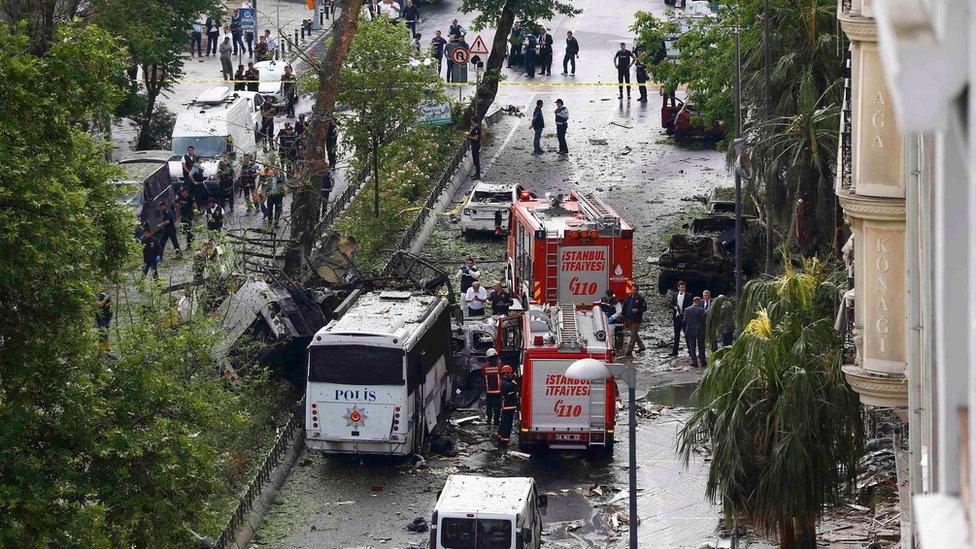
The blast happened during the morning rush hour in central Istanbul
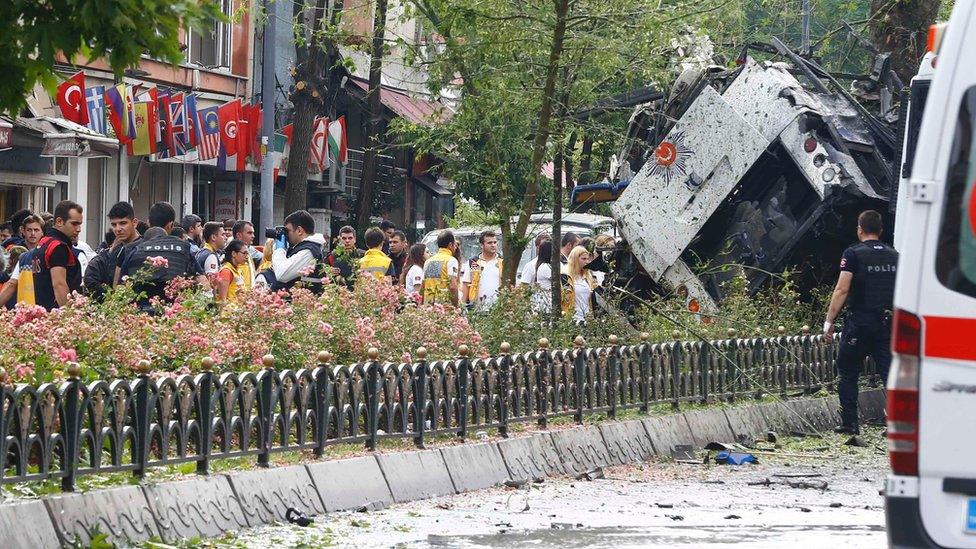
The explosion also damaged nearby buildings
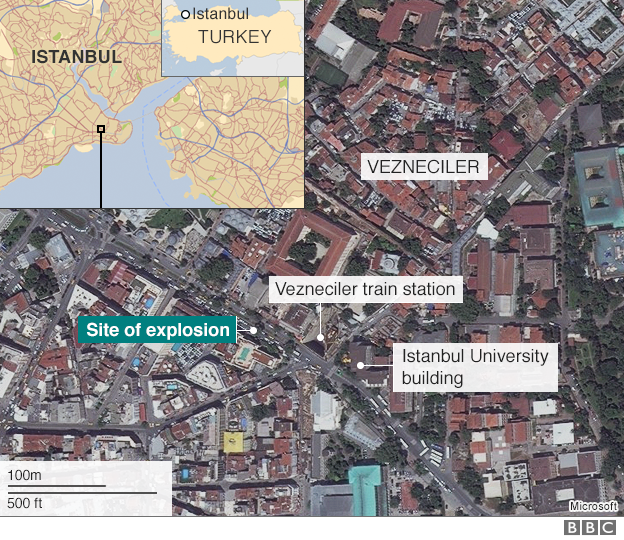
Visiting some of the wounded in hospital, Mr Erdogan said: "These (attacks) are being carried out against people whose duty it is to ensure the security of our people."
"These cannot be pardoned or forgiven. We shall continue our fight against terrorists tirelessly until the end."
Turkey's Foreign Minister, Mevlut Cavusoglu, said the attackers were "cold-hearted" for exploding bombs on the holy Muslim month of Ramadan, which is in its second day.

At the scene: Mark Lowen, BBC News

The force of the blast is clear, with windows of surrounding buildings shattered.
The bomb exploded in front of a hotel which, thankfully, was largely empty because of the current tourism decline here. But among the dead are police and civilians while some of those injured remain in a critical condition.
The most likely culprit is the PKK, a Kurdish militant group considered terrorists by Turkey, the EU and US. Kurdish fighters also targeted police vehicles in Ankara in February and March.
A Kurdish group calling itself TAK claimed responsibility then but the Turkish government and western intelligence believe they are simply an alias of the PKK. This is the fourth attack in Istanbul this year. A nervous, vulnerable country waits to see when the next strike could come.

An eyewitness told Reuters news agency that there was a "loud bang", strong enough to topple all the goods from the shelves of his store.
"We thought it was lightning, but right at that second the windows of the shop came down. It was extremely scary," he said.
Turkey has been hit by bloody attacks in recent months by so-called Islamic State (IS) and the PKK or one of its offshoots.
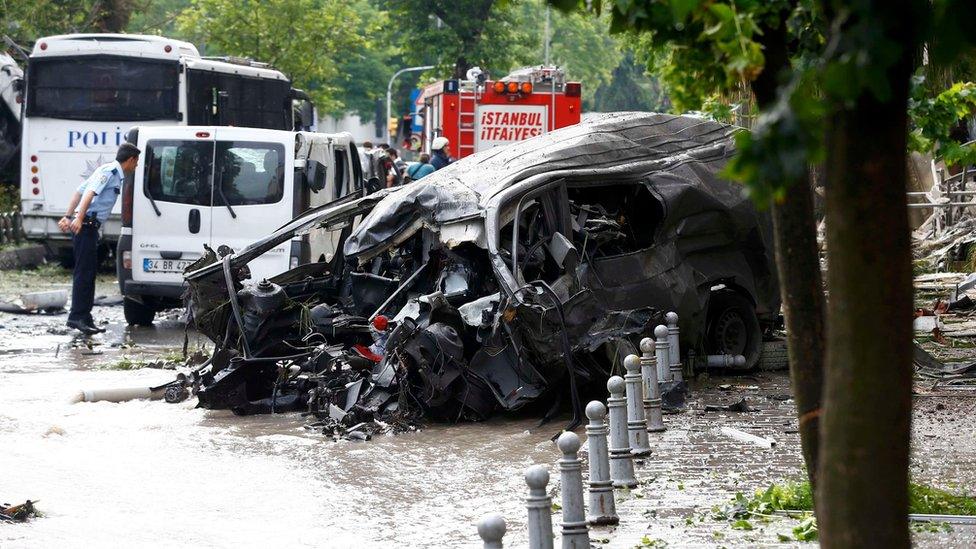
Reports said a parked car packed with explosives was detonated by remote control
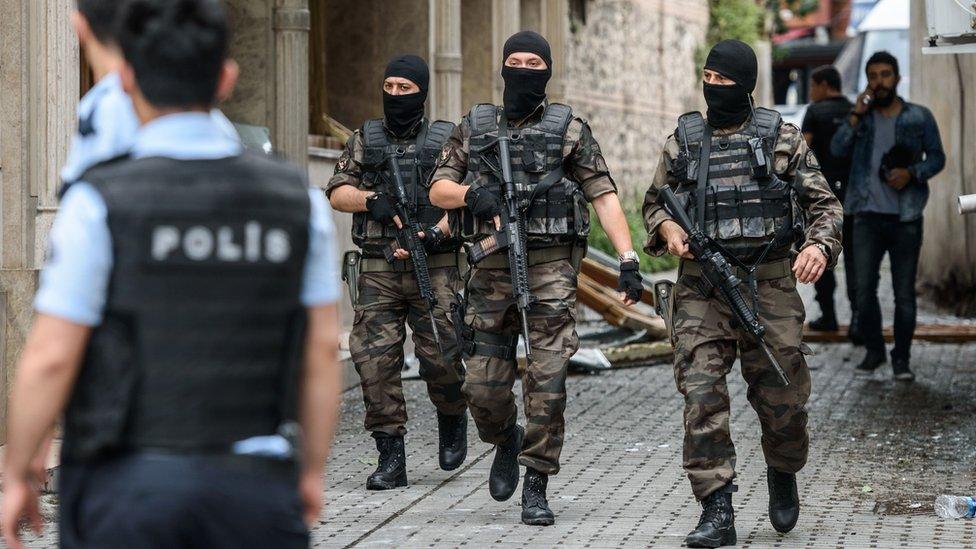
Officers from Turkish special forces were deployed to the area
The country is part of the US-led coalition against IS and allows coalition planes to use its air base at Incirlik for raids on Iraq and Syria.
It has also been waging an offensive against the PKK, which fights for autonomy in the majority-Kurdish areas in Turkey's south-east.
A two-year-old ceasefire between Turkey and the PKK broke down last summer. Since then, violence has killed hundreds of Turkish security forces, Kurdish fighters and civilians.

Recent attacks in Turkey
March 2016: 35 people killed by Kurdish militants in Ankara; 4 dead in a suicide attack in Istanbul
February 2016: 28 killed in military convoy in Ankara
January 2016: 12 German tourists are killed in a suspected IS suicide bombing in Istanbul
October 2015: More than 100 people are killed in a double suicide bombing at a Kurdish peace rally in Ankara

Are you in Istanbul? Have you been affected by today's attack? Do you live nearby or did you see what happened? If you have an experience you would like to share, or pictures of the incident, you can share it with us in the following ways:
Email us at haveyoursay@bbc.co.uk
Please include a contact number if you are willing to speak to a BBC journalist. You can also contact us in the following ways:
Send pictures/video to
Upload your pictures / video here, external
Tweet: @BBC_HaveYourSay, external
Send an SMS or MMS to 61124 or +44 7624 800 100
Contact us on WhatsApp number +44 (0)7525 900971
Text us on 61124 or +44 7624 800 100 if you are outside the UK
- Published5 January 2017
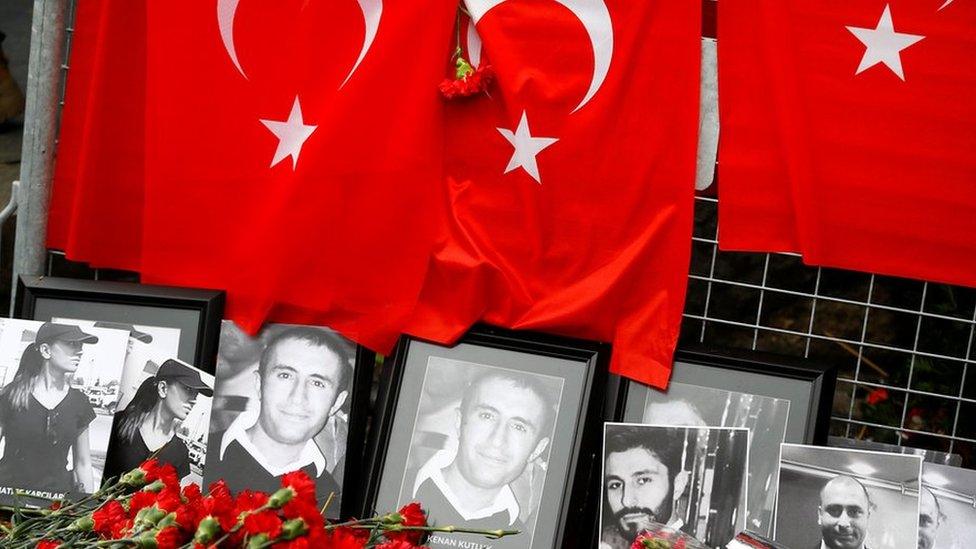
- Published14 March 2016
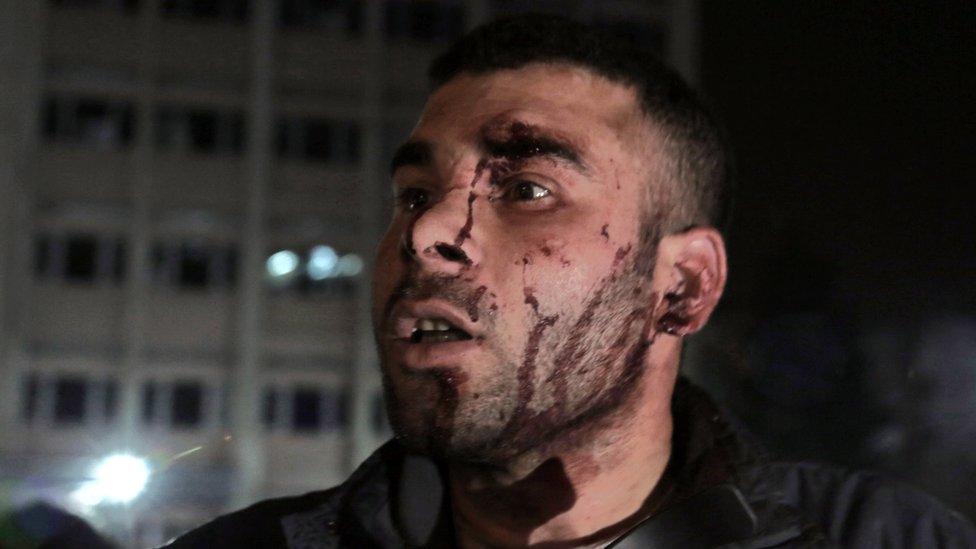
- Published22 August 2023
